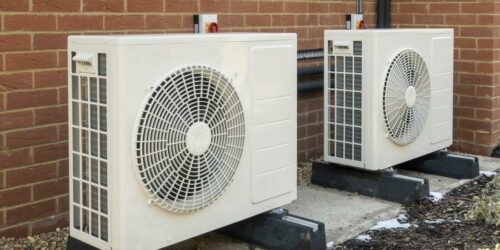Are Air Source Heat Pumps Worth It?
- Save £340 a year on your energy bills – £8,500 over its lifetime
- Calculate your own savings with an air source heat pump
- Lower your carbon footprint from 38–53%
Highly efficient and low carbon go hand in hand with an air source heat pump. The deciding factor is whether it saves you any money. Depending on the model, you could potentially save more than £2,830 over the course of its lifetime, which is no small amount. With the most efficient models, this will only increase.
This article will go over the benefits and drawbacks of air source heat pumps and weigh up whether they’re worth looking into for your property. It will explore various issues they resolve as well as problems that can arise during installation. This will help you decide whether you should switch to one.
Interested in a heat pump system already? Use our quote comparison tool to find out how much you’d pay. It only takes a minute.
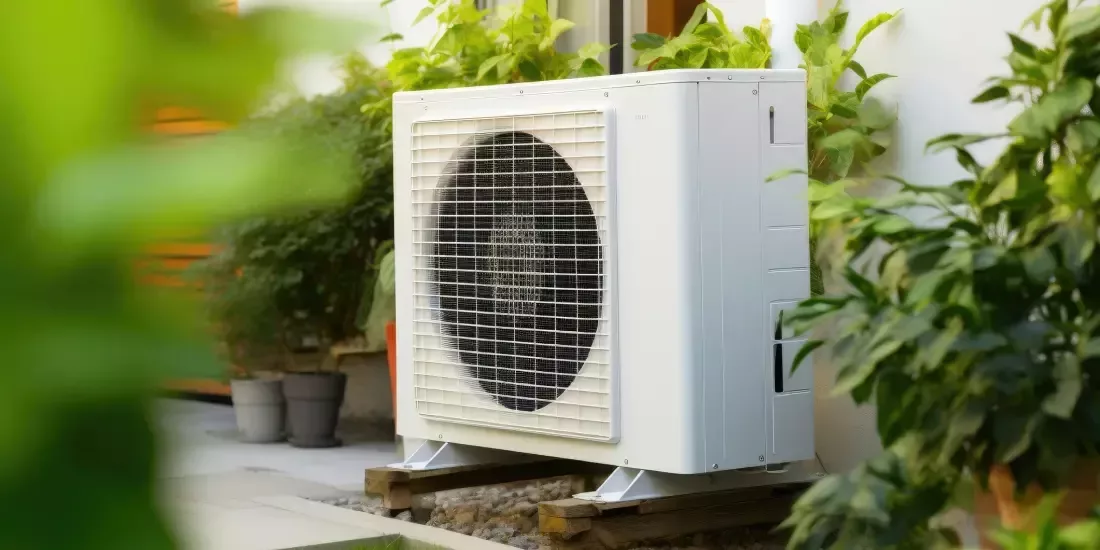
What's On This Page?
Click the links below and head straight to a specific section of the article.
Top Reasons to Get an Air Source Heat Pump
Cleaner heating
Long life
Government funding available
Cleaner Heating
For starters, air source heat pumps don’t burn fossil fuels to generate heat. Using electricity, they can output anything from 1.5–4 times more heat per unit consumed. This makes them not only highly efficient, but a much cleaner way of heating your home.
Long Life
Secondly, you can benefit from the long use you’ll get out of an air source heat pump. With the average useful lifespan of 25 years, this far outpaces any other heating method, which would have to be replaced much more frequently.
Government Funding Available
Another reason to transition to a heat pump is that there’s financial aid available. You can apply for a grant of £7,500 towards the cost of your installation, making it much more affordable.
How Much a Heat Pump Can Save You
The price of electricity is constantly changing, and Ofgem updates the price cap regularly to reflect changes in the market. This means that any fixed figures you may have seen about how much you can save with an air source heat pump will quickly become outdated.
Having said this, Energy Saving Trust estimates that you can save £260 a year on your energy bills if switching to a heat pump from an old G rated boiler. This could increase to £940 if swapping from electric storage heaters. Over 25 years, this would add up to £6,500 to £23,500.
Accurate Savings Amount
To get an accurate figure for how much you’d save with an air source heat pump based on your own usage, you will need to do some calculations yourself. We’ll give you a helping hand and perform a quick comparison with a gas boiler and show our workings as we go.
Factors to Consider
Before you can calculate your annual savings, you need to consider the following:
Your heating and hot water demand
How efficient your system is
Your energy use
Price of energy
Naturally, you will have to consider how the different types of air source heat pump work. Air-to-air models are useful for home heating but not so good with hot water storage. Air-to-water heat pumps are capable of powering both your heating and hot water demands.
In our calculations, we will assume an air-to-water pump has been installed.
How to Calculate Your Savings

The rough figure will be based on the energy efficiency of your system. Take the percentage and times this by your gas consumption. This gives you your actual annual heating demand.
Ofgem estimates an average home will use 11,500kWh of gas a year. This figure should then be timesed by the efficiency of your current boiler. For an example, we’ll go with 85%. In other words, 85% of the demand will be turned into heat.
11,500 × 0.85 = 9,775kWh
Now, you need to take the heating demand and divide it by the efficiency of your air source heat pump. The efficiency of a heat pump will change throughout the year, so you may have to do this more than once to get an accurate figure. For argument’s sake, we’ll assume your heat pump is 300% efficient, i.e., has a CoP of 3.
9,775 ÷ 3 = 3,258kWh
Now all you need to do is times this figure by the electricity unit rate. This would make your annual running costs for an air source heat pump £912.24.
3,258 × £0.24 = £781.92
Gas Boiler Comparison
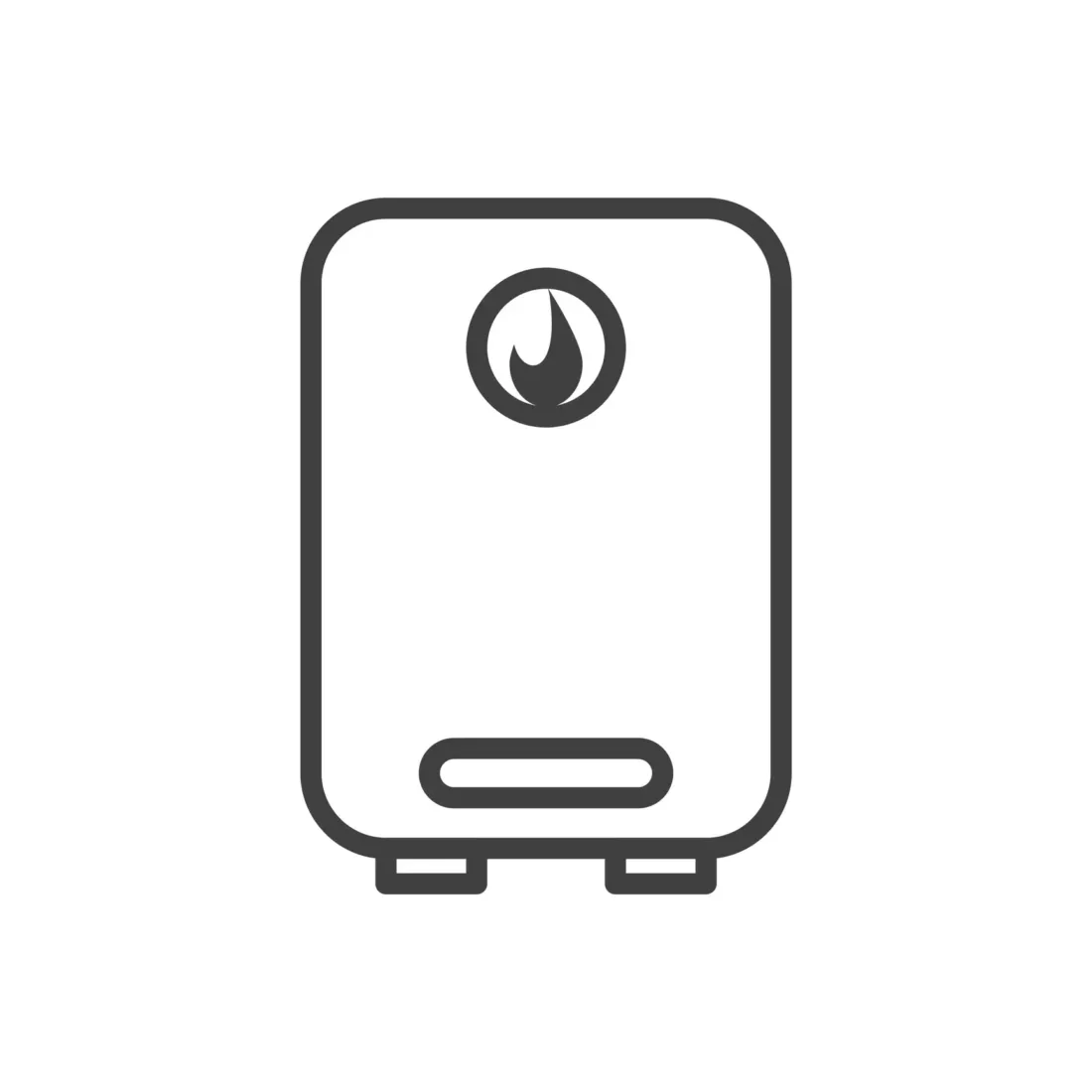
For a gas boiler, you will need to remove anything used for cooking (around 2.5%) to fairly measure how much you’ll save on heating and hot water. This leaves you with 11,212.5kWh. Take this figure and times it by the gas unit rate.
11,212.5kWh × £0.06 = £672.75
As households will be paying the standing charge for electricity anyway, you will also need to put on the standing charge for gas for a more even comparison.
The April 2024 price cap puts the gas standing charge at 31p/day. This equates to £113.15 (£0.31 × 365 = £113.15).
In total, an average household would spend £785.90 on heating and hot water using a gas boiler.
You can see how a gas boiler and air source heat pump compare in the table below.
These costs are quite close to one another, but the numbers will always fluctuate as the price cap moves up and down. Crucially, if you have a more efficient heat pump, you will save even more.
Additionally, you can always reduce costs by running your air source heat pump off solar panels.
Savings Across 25 Years
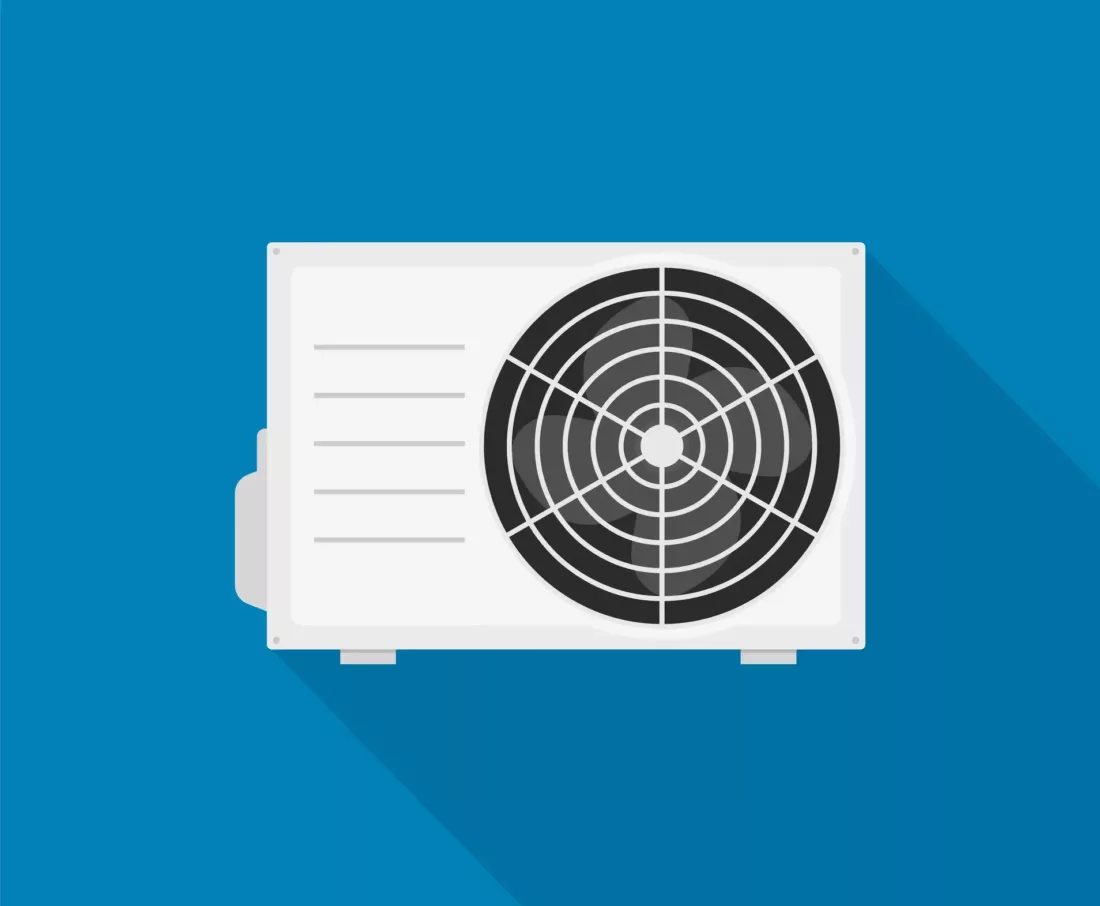
It may seem like there’s not much difference in switching to a heat pump, but you will still end up saving money across the lifespan of an air source heat pump because you will not have to replace the system as quickly as you would a gas one. This means you can save around £3,000 (or the price of a boiler replacement).
A gas boiler will last around 15 years, whereas a heat pump can still be operating 25 years after the installation. As well as saving on the installation of a new boiler, energy prices will fluctuate. The more electricity supplemented by alternative means, the more you can end up saving.
The Cost of an Air Source Heat Pump
On average, an air source heat pump costs around £10,000, which is a significant investment in itself. Fortunately, you can apply for the Boiler Upgrade Scheme. This replaced the Renewable Heat Incentive (RHI), now giving homeowners in England and Wales £7,500 off the cost of a heat pump. You can effectively buy an air source heat pump for 25% of the shelf price.
Additional Savings – No VAT
As an added bonus, VAT has been scrapped on various eco products, including air source heat pumps. After 2027, VAT will return to the reduced rate of 5%. This means that there are additional savings of £500–£750 to be made between now and then.
The Future of Home Heating
There has been a growing demand for low carbon heating, and heat pumps have been praised as the solution to the UK’s gas boilers. In fact, within a week of raising the grant amounts, applications for heat pumps increased by 60%.
With more households looking to install an air source heat pump, supply will also increase, invariably bringing prices down. According to MCS data, there were 35,329 residential heat pumps installed in the UK in 2023, and this is set to be even bigger this year.
The potential ban on new gas boilers means that you will eventually have to replace your heating system anyway. With air source heat pump technology improving as the years go by, better efficiencies are being introduced, which means better savings to be had. The more readily available they become, the more the price will come down too.
Problems an Air Source Heat Pump Solves
Reduced carbon footprint
Home heating and cooling
Renewable integration
Reduced Carbon Footprint
There are many benefits that a heat pump brings. To start with, switching from a gas boiler to an air source heat pump can reduce household emissions by 38–53%. Your carbon footprint will be significantly reduced, and even more so if you make use of renewable energy.
Home Heating and Cooling
As is becoming increasingly more prevalent, summer heatwaves are getting hotter, which the UK struggles to cope with. Air-to-air heat pumps have the ability to work in reverse, providing cool air to your home. This is especially useful for homes with high levels of insulation that retain heat incredibly well.
Renewable Integration
Thanks to operating on electricity, an air source heat pump can be integrated with other renewable systems. This gives you electricity for free, making your home heating setup much more sustainable. Solar panels save hundreds on your energy bills as it is, but supplementing your heat pump can help increase these amounts.
Potential Issues You Might Face
Larger radiators
Expensive installation
Lower winter efficiencies
Noise
Larger Radiators
With an air-to-water heat pump, you will need to replace your radiators to compensate for low flow temperatures. If you already have wet underfloor heating, this can be integrated perfectly. Air-to-air pumps don’t suffer from this issue because hot air is blown out of fans instead.
Expensive Installation
One of the bigger barriers to air source heat pump adoption is how retrofitting can be costlier to install. Your home may need new radiators, underfloor heating, replacement insulation or new pipework to make it economical to run. This means the installation could end up much more expensive than anticipated.
Lower Winter Efficiencies

As already mentioned, the efficiency of heat pumps will fluctuate throughout the year. In colder seasons, you won’t achieve the higher savings because the air source heat pump will require more electricity to maintain set temperatures. Some models are better than others though, so it pays to check.
Noise
Although air source heat pumps are limited to how loud they can be, it’s often described as a low hum no louder than a refrigerator in operation. This can be around 40dB, but can easily reach 60dB in cold weather when the unit is working harder.
The only reason this can be a potential issue is because neighbours may find the noise annoying. For the avoidance of doubt, an air source heat pump is allowed to reach 42dB from a distance of 1 metre from the neighbour’s nearest room. This may limit you to where it can be installed.
According to our latest survey, the operating noise of low carbon technologies is the second least important factor to the UK public. Only 5% of homeowners put it as their highest concern, and that was above cost.
Are Heat Pumps Worth It?
They absolutely are. Considering you can create a versatile system that works exactly how you need it to, an air source heat pump comes with so many benefits. With the additional aid of a £7,500 government grant, this makes it way more affordable.
Ready to cut your emissions, lower your energy bills and reduce your reliance on the grid? Find out how much you’d pay for a heat pump by clicking on the button below.
Related articles
View all Heat Pump articles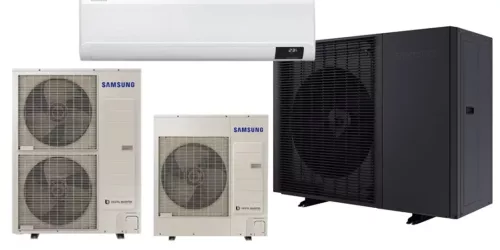
Samsung Air Source Heat Pumps: Overview and Costs
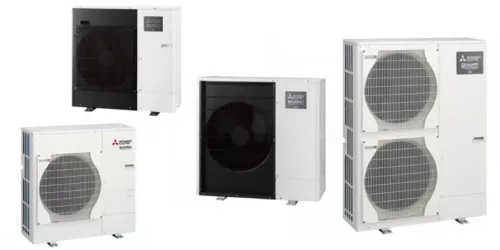
Mitsubishi Air Source Heat Pumps: Overview and Costs
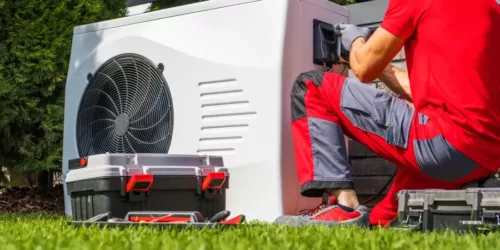
The Cost of an Air Source Heat Pump Service
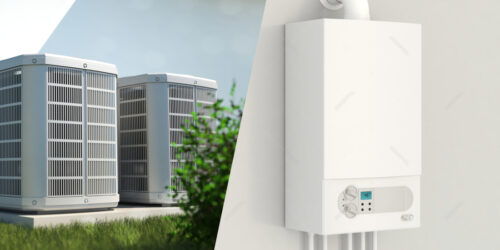
Heat Pump vs Gas Boiler - What's Better?
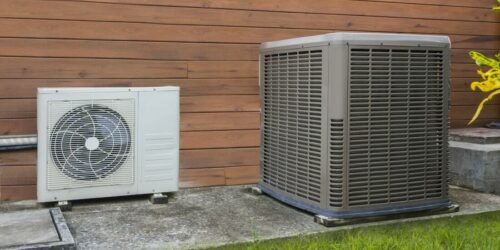
Different types of heat pumps: what’s available?
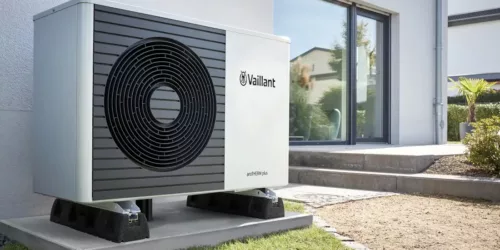
The Ultimate Guide to Vaillant Heat Pumps
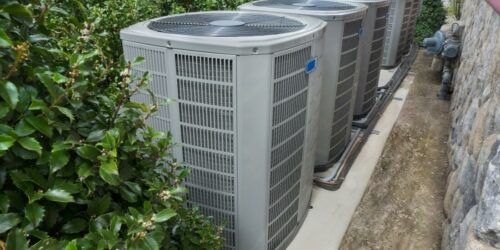
How Do Air Source Heat Pumps Work?
